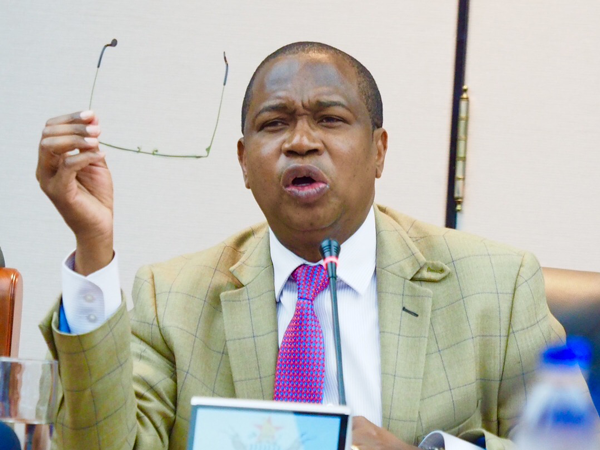

BY MTHANDAZO NYONI
The government is considering a duty waiver for closed mines to allow them to retool, Finance minister Mthuli Ncube has said.
Ncube said allowing the struggling mines to import equipment duty-free would complement efforts to revive the mining sector.
He said this would entail giving defunct mines national project status.
“The country stands to benefit a lot in terms of employment, incomes and fiscal revenue, among others, by resuscitating a number of closed and distressed mines located in various parts of the country,” Ncube said through his director for economic planning and modelling Charles Mujajati at the Mine Entra conference held in Bulawayo last week.
“Government is committed to offer full support for the resuscitation of such mining companies, including awarding them national project status where necessary, as well as fiscal incentives, which will allow duty-free importation of equipment, thereby facilitating the resumption of operations.”
Ncube said these were mines that were affected by the decade- long economic crisis in Zimbabwe and the global financial crisis, which saw prices of metals tumbling.
- Chamisa under fire over US$120K donation
- Mavhunga puts DeMbare into Chibuku quarterfinals
- Pension funds bet on Cabora Bassa oilfields
- Councils defy govt fire tender directive
Keep Reading
Some of the closed mines include Alaska, Mhangura, Silverside, Shackleton, Golden Kopje, Falcon Gold, Giant and Elvington Gold mines among others.
Ncube said Zimbabwe had a potential to generate substantial revenue from the mining sector
“Deriving such benefits, however, largely depends on investment and other support for the sector. Such potential is in respect of minerals such as platinum, gold, lithium and other metals,” he said.
The minister said the long overdue amendment of the Mines and Minerals Act continued to obstruct new exploration and investment in the sector.
He also bemoaned delays in the release of mining claims being held for speculative purposes.
Ncube said the mining sector had contributed an average of 6,2% to the gross domestic product (GDP) between 2009 and 2015 and 8,4% from 2016 to 2018.
Mining contribution increased in 2017 and 2018 to 9,2% and 10,1% respectively.
“Prospects to maintain the average contribution to GDP have, however, been hampered by depressed international prices for other minerals and to some extent power, fuel and foreign currency shortages,” Ncube said.
The mining sector is also the biggest contributor to export earnings.
For instance, the contribution of the mining sector to total exports increased from an average of 48% from 2009 to 2013, and increased to an average of about 53% from 2014 to 2018.
The major exports were dominated by gold, diamonds, platinum group of minerals and other minerals like nickel.
“The sector has the potential to contribute much higher, more so, if leakages are minimised,” Ncube added.











